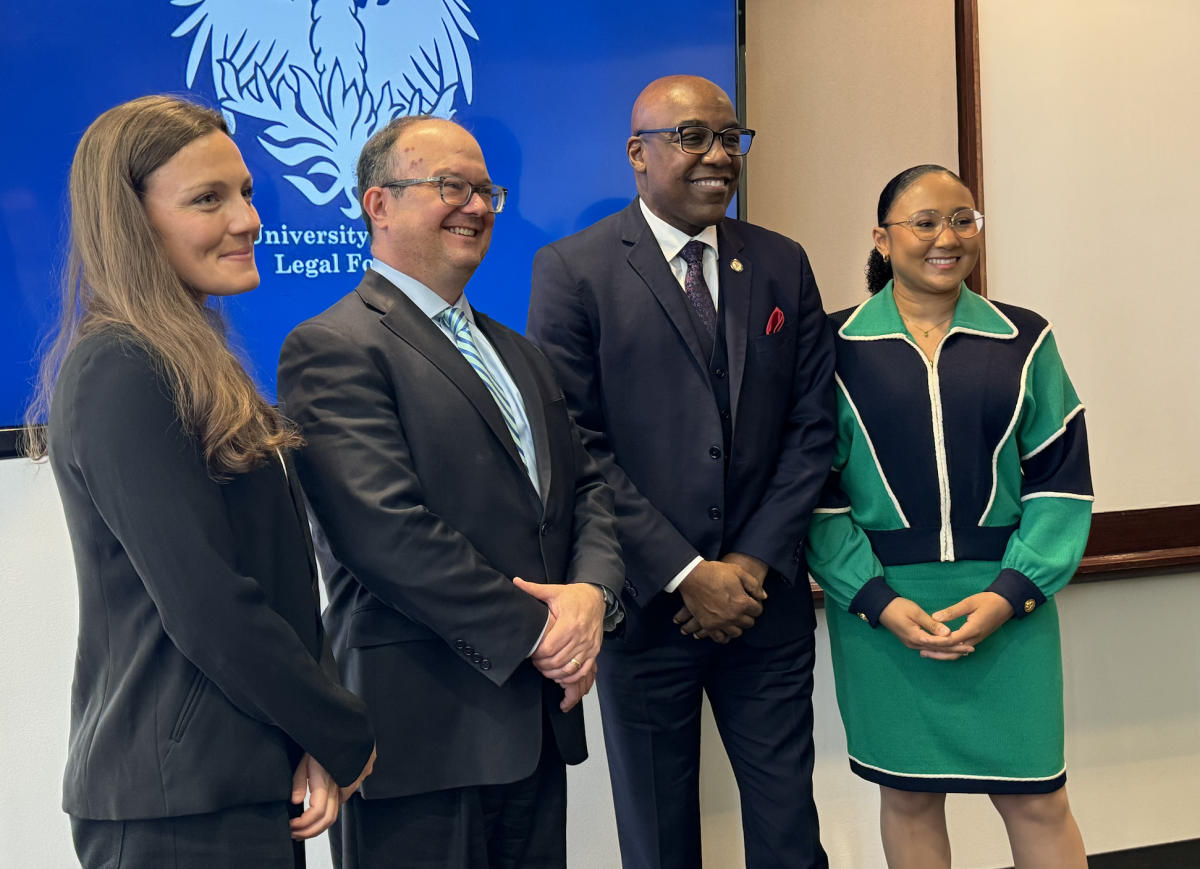On November 8, professors, researchers, and policy-makers gathered at the UChicago Law School for this year’s Legal Forum Symposium titled: Crisis, Calamity, and Catastrophe: Law in Times of Disaster. Panels included discussions of environmental disaster, financial disaster, democratic disaster, public health, and a keynote speech presented by Illinois Attorney General Kwame Raoul. Historic events, including Hurricane Katrina and the most recent Los Angeles heat wave, served as central foci for the speakers.
The event, organized by UChicago law students Kasey Coleman and Caroline Cohen, featured a broad range of presenters, including Co-Founder and Director of the International Human Rights Clinic Sarah Dávila-Ruhaak and renowned Georgetown Global Health Law professor Lawrence Gostin.
To kick off the morning, Thomas J. Miles, dean of the UChicago Law School, took the stage to describe the efforts of the day: “Our goal, as a university, is to expand the understanding and knowledge of law and our legal system [by] focusing on very important questions in our world, thinking deeply and ambitiously about them, being unafraid to ask challenging questions, and enthusiastically crossing interdisciplinary boundaries to bring new ideas and new insights to bear.” He then invited student representatives to speak, and the conversation transitioned into the first panel on environmental disaster.
Jeff Schlegelmilch and Michael Burger, climate analysts and advocates at Columbia University, echoed Miles’s thoughts about the role. “[Environmental advocacy] is not just a job,” Schlegelmilch said. “The recovery landscape of the United States at the federal level… is not a cohesive or elegant system that’s been pulled together. It’s really more of a comic-minded environmental kind of Jenga that’s been assembled over the years.”
Dávila A. turned the conversation to human rights and how they might be jeopardized in disasters. “The violation of one human right and one dimension necessarily implicates the other,” she said. “There’s also, with marginalization and vulnerability, an issue with local populations and communities not receiving [medical] information that is accurate.” She described the lack of resources in underrepresented communities and highlighted the difficulties of corporate-government relationships, citing both the lack of access to information and lack of transparent information as key problems in environmental and climate change–related inequalities.
In the following panel, focused on financial disaster, Columbia Law professor Kathryn Judge expanded upon this in her presentation, “The Emergency Lending Authority of the Federal Reserve.” Dhruv Chand Aggarwal and Adrian Walters also spoke about their work on crisis-driven financial legislation and bankruptcy resolutions of mass-harm events such as the COVID-19 pandemic and Hurricane Katrina.
Raoul and appellate lawyer Michael Scodro continued these thoughts in their keynote discussion and Q&A on legal repercussions of the COVID-19 pandemic in preparation for the ensuing public health panel. Describing the disaster proclamations, a series of formal statements released by Governor J. B. Pritzker detailing the state’s response and recovery capabilities regarding COVID-19, Raoul said, “We [the Illinois state government] did not have much guidance. The only existing legal authority interpreting the 30-day provision [meant to aid in the relief of COVID-19] was a 2001 nonbinding opinion issued by a former attorney general, Jim Ryan.”
“In addition to the scientific uncertainty surrounding this new virus, we also faced legal uncertainty on who had what authority to protect public health under Illinois law,” Raoul said. “Unfortunately, the Illinois court system failed to resolve this critical legal uncertainty for months.” According to Raoul, this led to continued health inequalities and inequities among Illinois citizens.
After the keynote discussion, Michael Paulsen, Samuel Issacharoff, and Manoj Mate spoke in a panel on democratic crises, both domestic and abroad, including the failure of checks and balances and election turmoil in many countries.
The final panel of the day, focusing on public health and including speakers Lawrence Gostin, Michele Goodwin, Michael Sinha, and Alison McCarthy, expanded on the COVID-19 pandemic as a disaster and its legal repercussions.
In the following panels, these themes were continued and expanded upon in the context of the upcoming presidential administration. More information on the Forum may be found on the Law School website.









